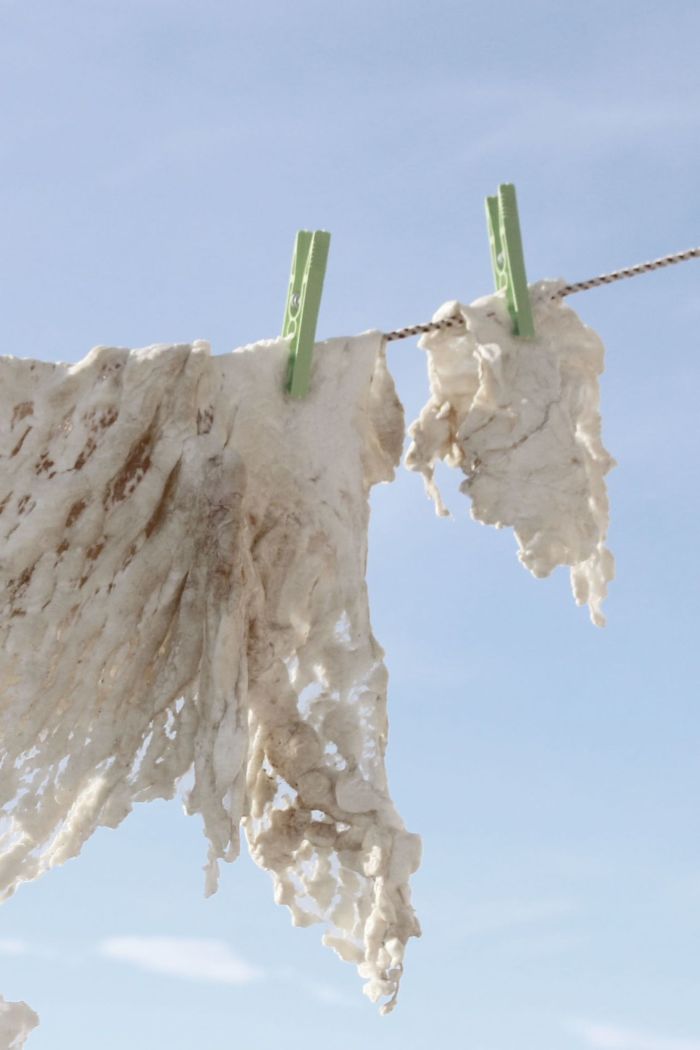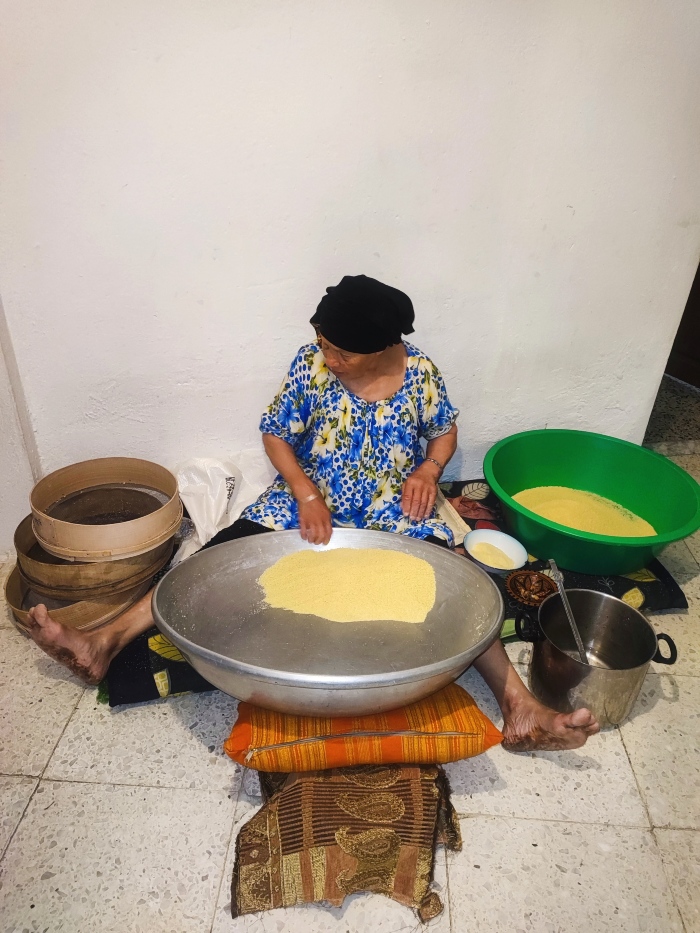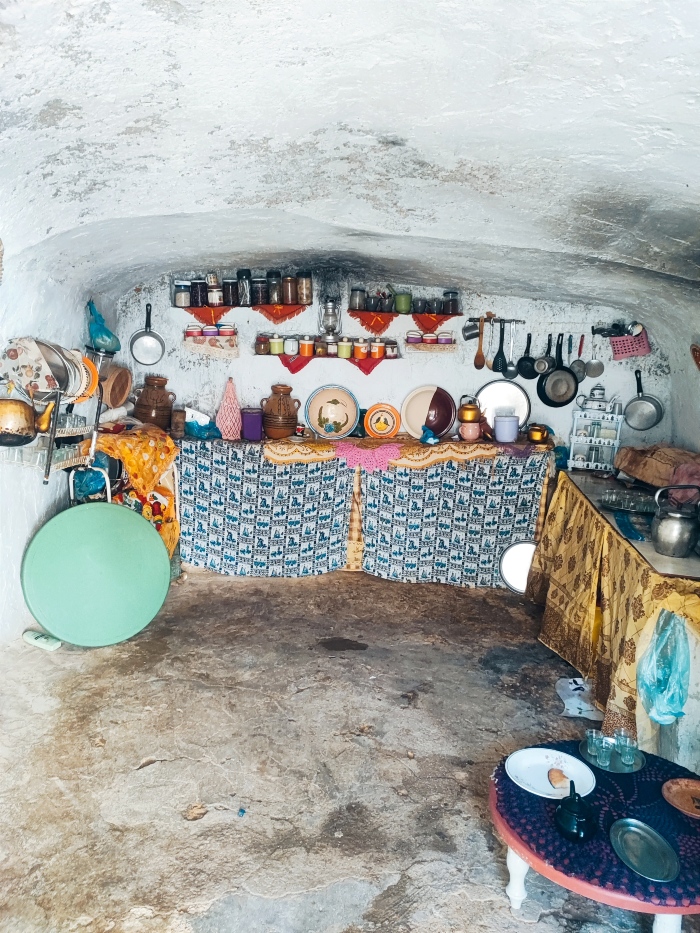FRArt Koujina, Subalterns' Cuisine : an experimental and collaborative artistic research on food, cookery and colonization
- is created by Ichraf Nasri
1. Koujina, Subalterns' Cuisine: introduction
- is cited by Oula de semoule de couscous, Tunis, novembre 2023
- is cited by Dîner par Rafram Chadad, 2023, faisant partie de l'exposition "The Good Seven Years" à la galerie B7L9 à Tunis
- is cited by Cuisine troglodyte à Matmata, dans le sud de la Tunisie, novembre 2023
- is cited by Olive harvest meal in Henchir Lksour, my grandfather's homeland in northern Tunisia, October 2023
- has as creator Ichraf Nasri
- type: Article
- ref: DOC.2023.87
- tags: coloniality of knowledge, post-colonial context, food, cooking, feminism, subalterns, lacks and deprivations, food shortage, ecology, subsistence, auto-ethnographic
Koujina, Subalterns' Cuisine : approaches the coloniality of knowledge through the lens of food in
Tunisia, through a series of discussions between the artist and women from working-class backgrounds.
These meetings will take place during collaborative cooking workshops following a clearly established protocol of knowledge exchange. Together, we will analyze through practice how traditional dishes have adapted; we will invent alternative presents for vanished dishes; we will address the lacks and deprivations ; we will contemplate culinary gestures and techniques, as well as the spaces and rhythms of post-colonial conviviality in a living research process. In this process, food is both the object of research, a communication tool, and the artistic medium. Our hypothesis: culinary traditions are practices of resistance.
Three research axes will guide the inquiry: To what extent does colonization continue to impact the intimate and daily experience of food? How do women reclaim spaces of commensality and conviviality in the post-colonial context? What can the subjectivity and practice of the artist contribute to an ethnographic approach? My personal experience will be the starting point, not only because I come from the studied terrain but also because the goal is to place affect at the center of research. The aim is to move away from Euro-centric epistemological frameworks by giving credence to other ontologies. The discussions will not be recorded but transcribed afterward to mobilize emotional memory as a valid research tool. The material
collected during the research will then be shared in Belgium with individuals from various diasporas of former colonies in a comparative study. Finally, it will become an auto-ethnographic narrative.
2. Skins (Tunisia)
- has as creator Ichraf Nasri
- type: Image
- ref: DOC.2023.89

- Ichraf Nasri -Photographie - Peaux-Tunisie.jpeg
- image/jpeg
- 134.17 KB
- download
3. Grandmother (Tunisia)
- has as contributor Ichraf Nasri
- type: Image
- ref: DOC.2023.90

- Ichraf Nasri-Photographie- Grand-mére- Tunisie.jpeg
- image/jpeg
- 896.05 KB
- download
4. Oula of couscous semolina, Tunis, November 2023
- has as creator Ichraf Nasri
- type: Image
- ref: DOC.2024.5

- Oula of couscous semolina, Tunis, November 2023
- IMG_20240123_184250.jpg
- image/jpeg
- 3.78 MB
- download
5. Dinner by Rafram Chadad, 2023, part of the exhibition "The Good Seven Years" at gallery B7L9 in Tunis
- has as creator Ichraf Nasri
- type: Image
- ref: DOC.2024.6

- Dinner by Rafram Chadad, 2023, part of the exhibition "The Good Seven Years" at gallery B7L9 in Tunis
- IMG_20240123_181341.jpg
- image/jpeg
- 7.01 MB
- download
6. Troglodyte kitchen in Matmata, southern Tunisia, November 2023
- has as creator Ichraf Nasri
- type: Image
- ref: DOC.2024.7

- Troglodyte kitchen in Matmata, southern Tunisia, November 2023 ; photo crédit: Ichraf Nasri
- IMG_20240123_181202.jpg
- image/jpeg
- 5.3 MB
- download
7. Olive harvest meal in Henchir Lksour, my grandfather's homeland in northern Tunisia, October 2023
- has as creator Ichraf Nasri
- type: Image
- ref: DOC.2024.8

- Olive harvest meal in Henchir Lksour, my grandfather's homeland in northern Tunisia, October 2023; photo credit: Ichraf Nasri
- IMG_20240123_184029.jpg
- image/jpeg
- 3.75 MB
- download